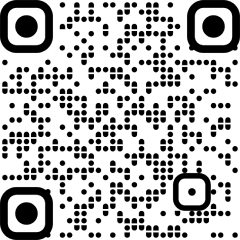
New Delhi: Night-time pollution from street lights and illuminated signals has been linked to developing countries. alzheimer’s disease Because of its effect on people’s sleep and biological clocks, according to a study that analyzed light pollution maps in 48 US states. The researchers said that night time light pollution So, this could be an important thing risk factor to develop aging-related disorders.
However, more studies are needed because the combined effects of outdoor and indoor night-time Light Researchers at Rush University Medical Center in the US said both studies are important to understand how they impact the development of Alzheimer’s disease.
irregular Sleep Patternincluding disturbances, a common feature capable of triggering mild cognitive impairment, which is an earlier stage MadnessOf which Alzheimer’s disease is the most common form.
Dementia affects memory, thinking and decision-making, causing a person’s daily functioning to continually deteriorate.
Known risk factors for developing dementia include: metabolic statusLike diabetes, high blood pressure and depression.
In this study, published in the journal Frontiers in Neuroscience, researchers looked at light pollution maps as well as data taken from residents’ medical records. The data were related to risk factors for developing Alzheimer’s disease.
The researchers found that among people aged 65 and older, Alzheimer’s disease was more strongly linked to nighttime light pollution than to other factors, including depression and obesity.
However, risk factors such as diabetes, high blood pressure, and stroke were found to be more strongly associated with Alzheimer’s disease than light pollution.
The researchers found that among people under age 65, higher nighttime light intensity was associated with a greater risk of developing Alzheimer’s disease than any other risk factor analyzed in the study.
The results suggest that people under age 65 may be particularly sensitive to the effects of light at night, the researchers said.
However, they were unclear as to why younger people might be more susceptible, while individual responses to light and genetic risk for Alzheimer’s disease may also play a role.
“Certain genotypes that influence early-onset (Alzheimer’s disease) affect responses to biological stressors, which may increase sensitivity to the effects of nighttime light exposure,” said Robin Voigt-Juvala, MD, associate professor at Rush University Medical Center and author of the study.
“Additionally, younger people are more likely to live in urban areas and have lifestyles that expose them to more light at night,” Voigt-Zuvala said.
The authors said that possible mechanisms by which light pollution may promote Alzheimer’s disease include sleep disturbance, hearing disturbance, sleep disturbance, hearing loss, vision disturbance, vision disturbance, vision disturbance… biological clock And swelling increases due to exposure to light.
He said that although data suggest that exposure to nighttime light may accelerate the development of Alzheimer’s disease, additional studies are needed, including studies on the effects of indoor and outdoor lighting on the development of the aging-related condition.

